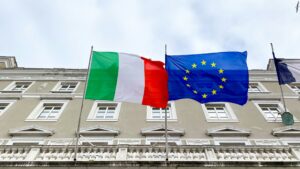Courtesy translation by Deepl
In a few days, COP27, or the most important global event organized by the United Nations on climate change, opens in Sharm El Sheikh.
There, governments of 193 countries will have to take concrete action on their pledge to limit climate warming to within 1.5° C of pre-industrial levels. In recent days, the United Nations has warned that without zero emissions by 2050, global warming will irreversibly exceed the warning thresholds indicated by climate science, exposing all countries to increasingly catastrophic economic and environmental damage. Inevitably, COP27 will turn the world’s spotlight back on the issue.
The COP is not only a major kermis of climate specialists, it is also and above all a major political-diplomatic event and represents the first major international stage to which the new Italian government will look. Italy arrives at the COP with a number of important commitments signed a year ago at COP26 in Glasgow, including a commitment to encourage a gradual exit from fossil fuels and joining, along with nine other European countries, the E3F (Export Finance for the Future) initiative aimed at redirecting international financing flows toward climate-neutral projects.
The work of Export Credit Agencies (ECAs), the national export credit agencies, is one of the main tools available to governments to achieve the goal. Italy’s ECA is SACE. ECAs are public institutions controlled by governments that provide insurance coverage against financial and geopolitical risks to international credit activity: in fact, the public guarantee is an indispensable ingredient for any investment activity abroad (and in particular in developing countries) especially for large projects of an infrastructural and industrial nature, such as precisely energy projects. It is no coincidence that, in a world still dominated by fossil fuels, the resources devoted by the G20 ECAs to investment in oil and gas exploration, extraction and transportation are still more than ten times greater than those devoted to renewable energy (about $40 billion versus $3.5 billion). For the achievement of climate goals, rapidly and massively redirecting ECAs’ resources from fossil fuels to supporting renewables is therefore strategic.
Until 2021, SACE was participated by Cassa Depositi e Prestiti, but recently returned under the direct control of the Ministry of Economy and Finance, now headed by Neo-Minister Giancarlo Giorgetti. At COP27, to credibly deliver on the commitments signed by the Italian government, SACE must play a decisive role, despite still being burdened by the legacy of the recent past. According to E3F’s latest transparency report from last May, SACE, among the ten ECAs of member countries, is in fact the one that, over the five-year period 2015-2020, has guaranteed the most support for fossil fuels ($8.4 billion). Unlike other European sister companies, SACE has also not yet adopted its overall energy policy aligned with Italy’s commitment made a year ago at COP26. The upcoming international meetings are thus an opportunity for both the new government and SACE to present a policy in line with the commitments made, with science and to protect the overall credibility of our country.
Link to original article in Italian: https://www.ilsole24ore.com/art/verso-cop27-clima-e-credibilita-governo-italiano-AE2x5cDC
Photo by Samson Bush







